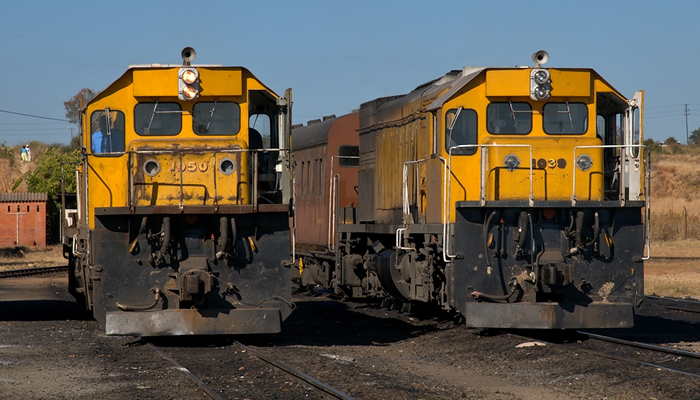Zimbabwe’s cash-strapped government has admitted that it has failed to revive its railway operator parastatal due to lack of funding.

Finance minister Patrick Chinamasa said the country will have to look elsewhere for solutions to resuscitate the National Railway of Zimbabwe (NRZ).
“A comprehensive capitalisation programme for the National Railways of Zimbabwe has remained elusive. Government will, however, continue to scout for a strategic partner for this project,” he said.
“The NRZ has since appointed a financial advisor to assist in this process, including developing a well packaged and bankable project proposal for engagement with potential financiers,” Chinamasa added.
The government’s admission comes after Parliament has urged it to prioritise reviving the parastatal due to its strategic importance in the economy.
A report released by the Public Service, Labour and Social Welfare Portfolio Committee noted that there was urgent need for the government to find effective long-term solutions to reverse the downturn at NRZ.
“The government should assist NRZ in its recapitalisation drive by guaranteeing the loan implementation on recommendations of the auditor-general’s narrative report on State enterprises and parastatals of 2014. These include regular review of monthly bank reconciliation statements and evaluation of investment properties to guard against fraud,” read part of the report.
NRZ, the report added, should modernise its old equipment which created high maintenance costs that results in uncompetitive pricing and services as compared to road transport.
This comes as NRZ, which needs least $2 billion in the long-term to restore full viability, has been struggling to pay more than 5 700 workers and refurbish locomotives due to lack of capital.
In May, Transport minister Joram Gumbo said government was taking steps to reduce NRZ’s workforce by up to 70 percent citing poor business environment and the parastatal’s low capacity utilisation.
“At the moment, NRZ is over employed with about 5 700 workers and this figure is high compared with the capacity at which the railways company is operating. There is need to embark on a staff rationalisation programme in relation to the business NRZ is generating,” he said.
The parastatal owes its employees over 15 months’ worth of unpaid salaries, amounting to a total of $87 million. The workers have been on strike since March, demanding to be paid their dues.
At its peak, NRZ employed about 20 000 workers and moved 18 million tonnes of freight annually. NRZ now moves less than
100 000 tonnes per week, the effects of industry collapse and poor rail infrastructure.
“Industry in Bulawayo has scaled down considerably due to various economic factors. We hope all stakeholders will work together to revive industry, and hence revive the NRZ and indeed all other sectors of our economic environment,” said Gumbo. Daily News






